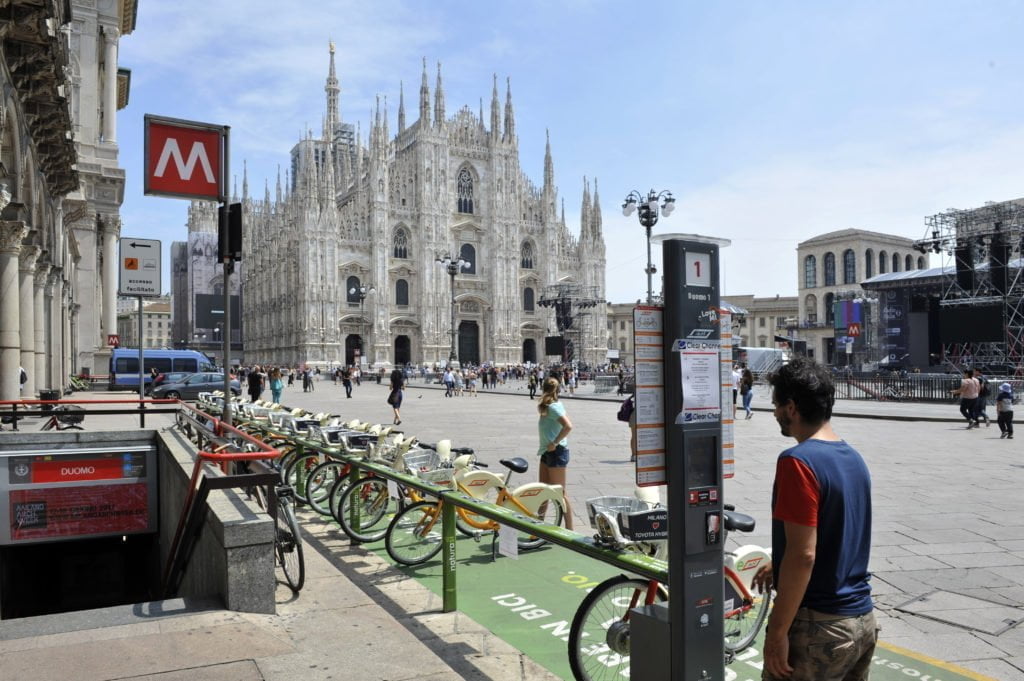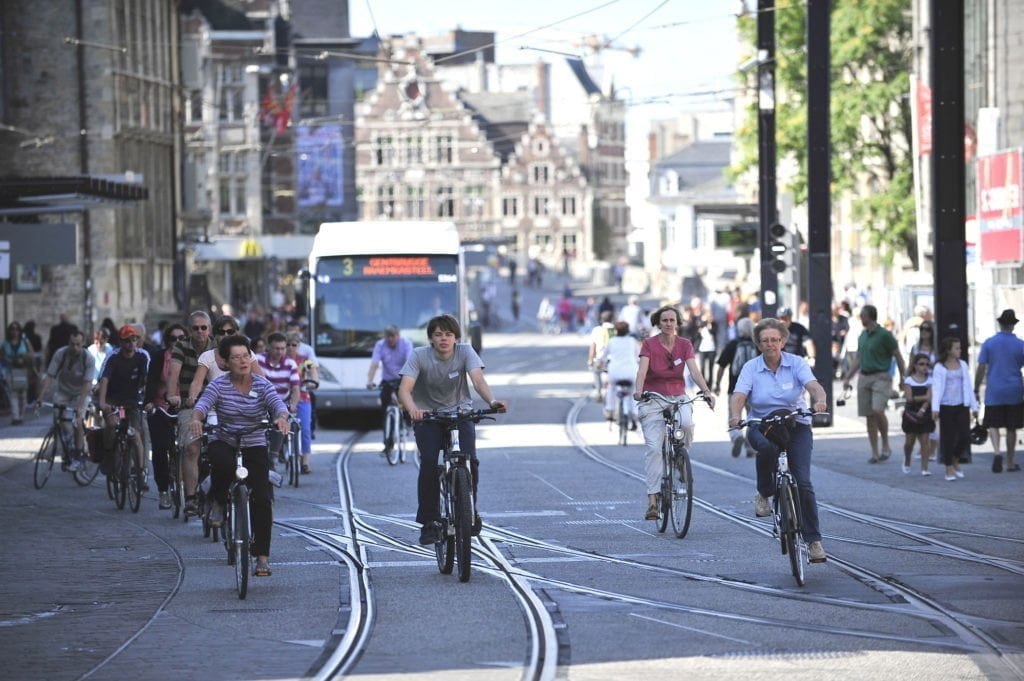Ghent and Milan win international car sharing awards
POLIS members Ghent and Milan received international recognition for car-sharing promotion and support policies. The two cities won the CSA Carsharing City Award in the categories ‘regional cities’ (less than 750,000 inhabitants) and ‘metropolitan cities’ (more than 750,000 inhabitants).
MilanThe city of Milan won the award for metropolitan cities, staying ahead of Munich, Vancouver, Madrid, Paris and Calgary.
The city has one of the largest car-sharing offers and uptake in the EU. Over the past five years, the number of car-sharers more than tripled to over 1.1 million users. The shared vehicle fleet is some 3,300 passenger cars, but the shared mobility offer also includes taxis, motorcycles, bicycles and micro-mobility devices (e.g. e-scooters).
The city of Milan is committed to promoting shared mobility (as a means to decouple mobility needs and the use of private cars), sustainable mobility and the quality of public space. As such, the promotion of shared mobility is a crucial element in Milan’s SUMP(link is external). The city applies a range of measures to promote vehicle sharing, including the provision of a discount for carsharing parking permits and a flat fee for parking privileges in the congestion zone. Furthermore, the city is developing mobility hubs where all forms of shared mobility are co-located as well as a mobility-as-a-service programme, which includes a single app to get information and access to all mobility services operating in the city.
In addition, Milan has a clear objective of moving all Shared Mobility services towards zero-emission. Electric shared vehicles do not have to pay parking fees in the congestion zone until 2023. Starting in 2024 only EVs are allowed for carsharing.
GhentThe Belgian city won the award for regional cities holding off Bremen, Bergen, Lisbon and Ljubljana.
Over the past five years, the number of car-sharers in Ghent more than tripled from just 4,000 in 2015 to nearly 14,000 car sharers today and an ambition to reach 25,000 users by 2025. Part of this success can be attributed to successful regular communication campaigns. The campaigns are coordinated by an NGO, cooperating with the city and car-sharing originations and it receives funding from the city (amounting to €50,000 /year) and additional funds from the ERDF.
In addition, the city has adopted a dedicated Carshare Action Plan, containing measures to increase car-sharing. The measures are well-aligned with Ghent’s Mobility Plan, Traffic Circulation Plan, parking policies and access regulations. Among others, shared cars can enjoy free parking in Ghent and have reserved parking places, including special permits for their restricted access zone. Part of these reserved spaces are clustered around public transport and combined with other shared mobility services (e.g. bikes, scooters). Furthermore, there are subsidies for the membership of a car-sharing organisation and for the purchase of electric shared cars that become part of the sharing fleet.
Of course, the city administration sets an example by using shared vehicles for work-related travel, wherever possible.
On a personal note, Ghent’s Deputy Mayor Filip Watteeuw who accepted the award shared that he enjoys not having to own a car, both in his function as deputy mayor as well as in his private life and that he uses carsharing, cycling and cargo bikes to meet his mobility needs.
In addition, Watteeuw also acknowledged the inspiration Ghent received for its carsharing policies from the City of Bremen as well as the value of transnational cooperation. In line with this comment, a public report listing the top five policies cities can implement to encourage carsharing has been prepared, which features lessons learned from each of the nominated cities. The full report "Five Foundational Carsharing Policies for Every City" is available here.
The awardThe awards were given by Movmi and CSA, an international carsharing association, that promotes the benefits of car sharing. The winners were selected by a jury comprised of 6 members coming from different countries. The awards were a worldwide competition to acknowledge and reward the leading cities for introducing, maintaining, supporting, and recognising the value of a viable carsharing eco-system in their city.
Cities and operators nominated 27 cities from across the globe, which were evaluated on their vision and leadership, policy framework and operational ease and sustainability.
More information:
- A presentation and Q&A with winners Milan and Ghent at the final ceremony (in English)
- Car sharing international policy lessons report (in English)
- Milan’s shared mobility policies (in Italian)
- Ghent’s shared mobility campaign (in Dutch)
This article first appeared on Eltis, the Urban Mobility Observatory.

